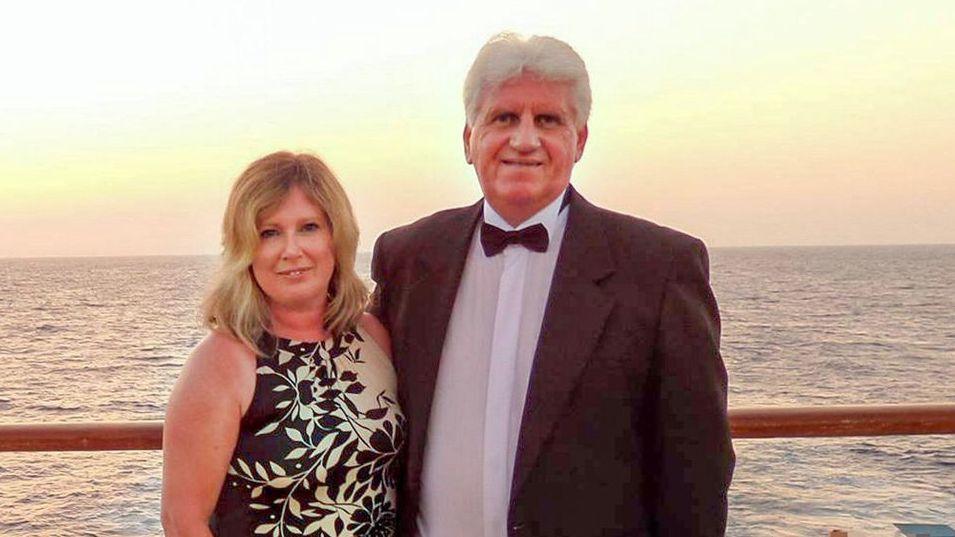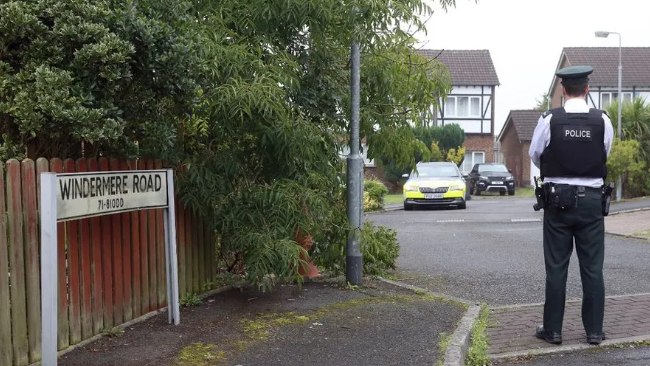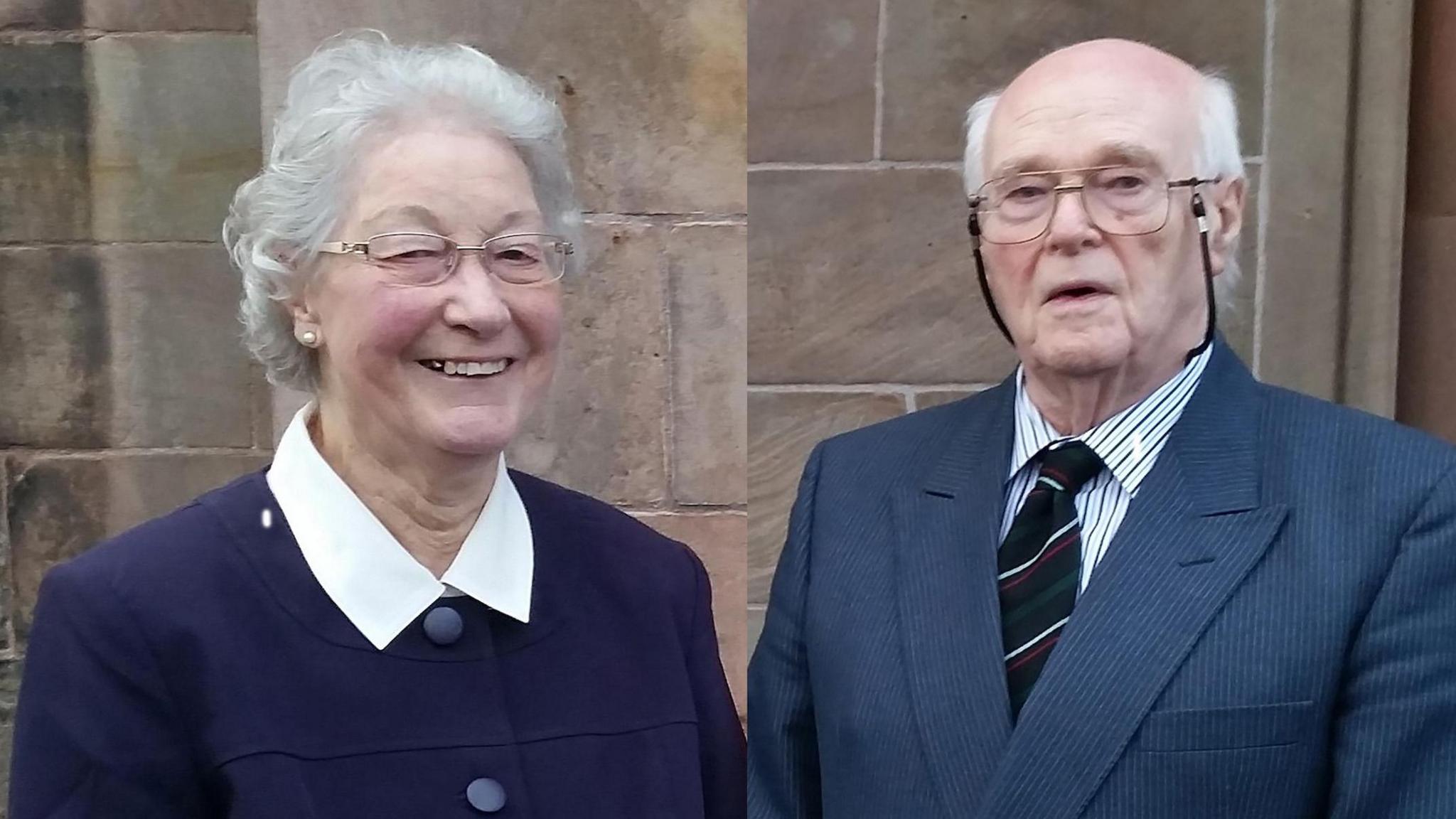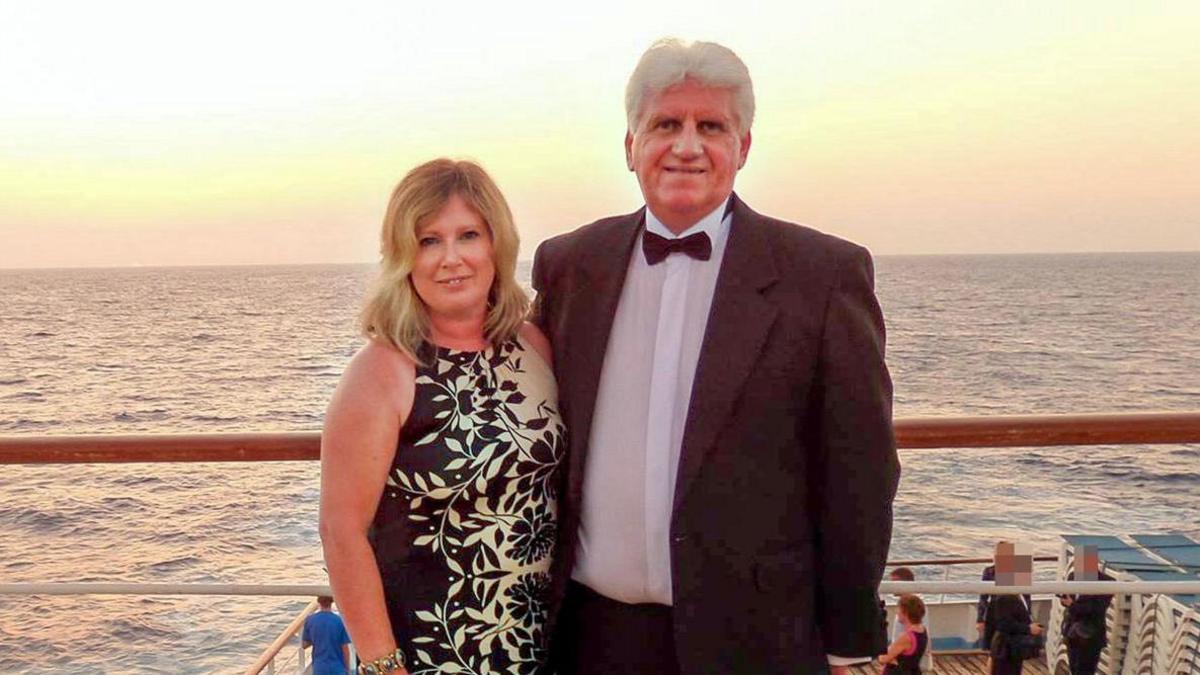Killed woman 'dreaded husband's hospital release'

Susan Baird died as a result of catastrophic head injuries in August 2020
- Published
A woman who was killed by her mentally ill husband had "dreaded" his release from hospital just days before her death, a court has heard.
Gary Alexander Baird attacked his 60-year-old wife Susan Baird at the home they shared on Windermere Road in Belfast on 16 August 2020.
She died of "catastrophic" head injuries in what the judge called a "brutal" assault with a hammer.
Baird, who is 65, has been sentenced to a seven-year term after he previously pleaded guilty to her manslaughter by way of diminished responsibility.
The judge said three of those years should be spent in prison and the remaining four years on licenced release.
However, Baird is expected to be released later this year due to the time that he has already spent on remand.
At a pre-sentencing hearing earlier this week, a defence barrister said a call log from June 2020 indicated that Baird had made more than 570 calls to his GP seeking help with his mental health but "none of them were answered".
During Wednesday's sentencing, Belfast Crown Court heard more details of Baird's deteriorating mental health before the killing.
The couple were married for almost 40 years and had four children.
The judge, Mr Justice McFarland, said their relationship had experienced some difficulties over finances and bereavement, but they had never separated during their long marriage.
Medication concerns
Baird, who stood in the dock with a shaved head and wearing a checked shirt, spoke only to confirm his identity at the start of the sentencing.
The court was told his problems began following the death of his mother in 2016.
At one point in 2017, Mrs Baird sought a divorce but the couple received counselling and the divorce did not proceed.
The judge said Baird struggled particularly with his mental health during the Covid-19 lockdown because he was “stuck in the house” all the time.
It was alleged he described hearing voices in his head from June 2020 onwards.
He had sought help and was prescribed medication for his condition, but there was uncertainty over whether he had been fully complying with his medication regime at the time of the killing.
A large quantity of his prescribed drugs were found at his home after Mrs Baird's death.

Gary Baird admitted the manslaughter of his wife by diminished responsibility
'Possible suicide attempt'
On 6 August 2020, 10 days before the killing, Baird was severely injured in an incident with a bin lorry in Bedford Street in central Belfast.
This resulted in the amputation of some of his fingers and he was admitted to hospital.
The judge said the nature of that incident was still a matter of speculation but in his judgment it could be seen as a possible suicide attempt or an episode of self-harm.
The court heard Mrs Baird was “dreading” her husband being discharged from hospital, fearing he could become “even more weird”.
During sentencing, the judge pointed out that Baird had no previous convictions and no history of domestic violence.
He added prior to the attack, his life was one of “exemplary conduct”.
He said he also accepted that Baird’s mental health was “substantially impaired” and he could not form a rational judgment at the time of the killing.
The judge referred to mental health assessments which found Baird had suffered from severe depression with "psychotic features".
Not all medics who assessed the patient agreed Baird had experienced psychosis, but they also did not rule it out.
Following the killing, Baird was detained in secure hospital units under the provisions of the Mental Health Act for a year.
On his release, he was then detained by police and spent most of the past three years behind bars.
Passing sentence, Mr Justice McFarland said there were several aggravating features to the attack – pointing out that it was unprovoked, and involved the use of “gratuitous violence” against an innocent victim in her own home.
But he also listed mitigating factors including Mr Baird’s mental state at the time, his own injuries to his hand and head, and his previous good character.
Children 'welcome and accept verdict'
The couple's children issued a statement following the sentencing in which they said they "welcome and accept the verdict of manslaughter with diminished responsibility".
"Through our immense heartbreak, we hope to see improvements and better funding in mental health services across Northern Ireland," they said.
"All family members wish to extend their heartfelt thanks to all who have shown kindness, and we ask for privacy as we continue in our grief."
The judge said he had read "very moving" victim impact statements made by Mrs Baird's children, brother and sister.
"Each statement in its own way spoke eloquently about the devastation caused by the death, about the loss suffered by the sister, brother and children as individuals and also by members of the wider family.
"For everyone, this has been a deeply emotional experience, particularly for the children knowing that their mother has been killed in such a brutal way by their father."

Police were called to the couple's home in 2020 after Gary Baird phoned 999
'My dad killed my mum'
In order to protect the family’s privacy, the judge did not read out the victims' statements in detail, save for an opening line from one of the couple’s children.
It read: “On 16 August 2020, my dad killed my mum.”
The writer added those words never got any easier to say, that they struggled to write them down and that it was very difficult to accept they were now the family’s reality.
The court was told Mr Baird, a former security guard, had worked for the BBC for 32 years before taking early retirement in 2012.
In terms of future risk, the judge said Mr Baird had been “appropriately behaved” in prison and that the evidence suggested that his mental health “now stabilised".
The judge acknowledged Baird had used alcohol as a coping mechanism during his illness, but this had been under control since he was confined to jail.
But he warned if it was discovered that Baird was abusing alcohol or failing to take his prescribed medication while on licenced release, he would be recalled to prison.
Related topics
- Published9 July 2024

- Published8 July 2024
